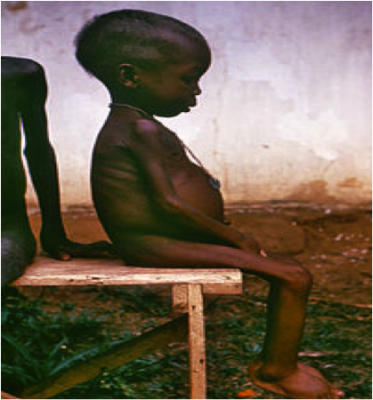Difference between revisions of "Nigerian-Biafran War, Nigeria"
(Created page with "=== 1967 - 1970 === 400px|thumbnail|left Nigeria gained independence from the United Kingdom in 1960 without declaring ethnic border boundaries, leaving an in...") |
|||
| Line 1: | Line 1: | ||
=== 1967 - 1970 === | === 1967 - 1970 === | ||
[[File:Nig.png|400px|thumbnail|left]] | [[File:Nig.png|400px|thumbnail|left]] | ||
| − | Nigeria gained independence from the United Kingdom in 1960 without declaring ethnic border boundaries, leaving an independent republic of Biafran people in a separate secessionist state from the rest of the country. A range of economic and political tensions ensued, including the long shadow cast by the exit of the colonial powers, the scramble for Nigerian oil, and the mix of people of different ethnic, religious and social backgrounds, and these tensions flared up and led to civil war. In the month of September 1966 alone, 30,000 people were killed. The genocide was largely inflicted on the Igbo people. Over one million people died from famine and murder in two and a half years of conflict. | + | Nigeria gained independence from the United Kingdom in 1960 without declaring ethnic border boundaries, leaving an independent republic of Biafran people in a separate secessionist state from the rest of the country. A range of economic and political tensions ensued, including the long shadow cast by the exit of the colonial powers, the scramble for Nigerian oil, and the mix of people of different ethnic, religious and social backgrounds, and these tensions flared up and led to civil war. In the month of September 1966 alone, 30,000 people were killed. The [[genocide]] was largely inflicted on the Igbo people. Over one million people died from famine and murder in two and a half years of conflict. |
[[Category:Acts of Genocide since World War II]] | [[Category:Acts of Genocide since World War II]] | ||
Latest revision as of 14:28, 31 March 2014
1967 - 1970[edit]
Nigeria gained independence from the United Kingdom in 1960 without declaring ethnic border boundaries, leaving an independent republic of Biafran people in a separate secessionist state from the rest of the country. A range of economic and political tensions ensued, including the long shadow cast by the exit of the colonial powers, the scramble for Nigerian oil, and the mix of people of different ethnic, religious and social backgrounds, and these tensions flared up and led to civil war. In the month of September 1966 alone, 30,000 people were killed. The genocide was largely inflicted on the Igbo people. Over one million people died from famine and murder in two and a half years of conflict.
